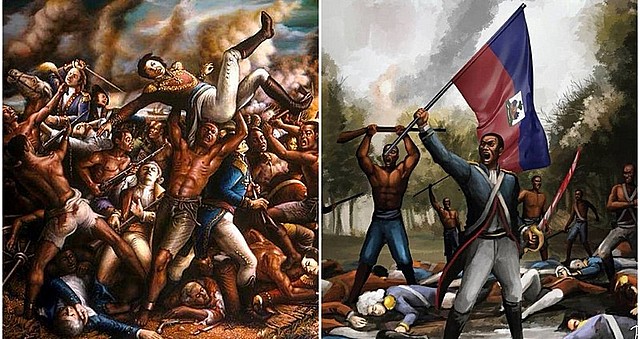Thank you to all who attended the Miskatonic London lecture “American Voodoo: Fictionalizing Haiti to Meditate on US Policy” with Maisha Wester. At the request of some of the audience, she has graciously provided us with a list of her film and text references, for our further edification.
List of References for “American Voodoo” Lecture
Texts and Films mentioned during lecture
- The Constitution of Haiti with Preamble (1804 edition)
- Douglass, Frederick. “Lecture on Haiti.” Dedication Ceremonies Delivered at the World’s Fair, Chicago on Jan. 2 1893.
- The Emperor Jones (1933)
- The Haitian Declaration of Independence
- Melville, Herman, Benito Cereno
- Poe, Edgar Allan, The Narrative of Arthur Gordon Pym
- Putnam’s Magazine (October-December 1855)
- Seabrook, William, Magic Island
- The Serpent and the Rainbow (1988)
- The Sorcerer’s Apprentice (2010)
- White Zombie (1932)
- I Walked with a Zombie (1943)
- The United States Declaration of Independence
Some suggested reading
- Blum, William. “A Concise History of US Global Interventions, 1945 to the Present.” Devastating Society: The Neo-Conservative Assault on Democracy and Justice. Ed. Bernd Hamm. London, UK: Pluto Press. Pp 204-246
- Brown, Gordon S.. Toussaint’s Clause : The Founding Fathers and the Haitian Revolution. Jackson, MS, USA: University Press of Mississippi, 2005.
- Caribbean Studies Series: Haiti and the Americas. Eds. Carla Calargé, Raphael Dalleo, and Clevis Ronald Headley. Jackson, MS, USA: University Press of Mississippi, 2013.
- Chomsky, Noam, Solomon Eppel and Tushar Khadloya. “Contradictions in U.S. Foreign Policy.” The Brown Journal of World Affairs 14.2 (Spring/ summer 2008): 229-39
- Clavin, Matt. “Race, Rebellion, and the Gothic: Inventing the Haitian Revolution.” Early American Studies 5.1 (Spring 2007): 1-29.
- Dash, Michael J. Haiti and the United States: National Stereotypes and the Literary Imagination. New York, NY: St. Martin’s P., 1997.
- Dayan, Joan. Haiti, History, And The Gods. Berkeley: University of California Press, 1998.
- “Dr. Paul Farmer on Bill Clinton’s Apology for Devastating Haitian Rice Farming: ‘A Great Relief’”. Democracy Now. 14 July 2011.
- Farmer, Paul. “Haiti’s Unnatural Disaster.” Nation 287.10 (Oct. 6, 2008): 7-8.
- Gerlus, Jean-Claude. “The Effects of the Cold War on U.S.-Haiti’s Relations.” Journal for Haitian Studies 1.1 (Spring 1995): 34-56
- Haiti and the United States in 1922 A Brief on the and Occupation of the Republic of Haiti by the Forces the United States
- Haitian History: New Perspectives. Alyssa Goldstein Sepinwall. New York and London: Routledge, 2013.
- Plummer, Brenda Gayle. Haiti and the United States: The Psychological Moment. Athens, GA: U. of Georgia P., 1992.
- Post-Lauria, Sheila. “Editorial Politics in ‘Benito Cereno.’” American Periodicals 5 (1995): 1-13.
- Roth, Sarah N. “The Politics of the Page: Black Disfranchisement and the Image of the Savage Slave.” The Pennsylvania Magazine of History and Biography 134.3 (July 2010): 209-233
- Spellacy, Amy. “Mapping the Metaphor of the Good Neighbor: Geography, Globalism, and Pan-Americanism during the 1940s.” American Studies 47.2 (Summer 2006): 39-66
- Swanson, Philip. “Going Down on Good Neighbors: Imagining América in Hollywood Movies of the 1930s and 1940s (Flying Down to Rio and Down Argentine Way).” Bulletin of Latin American Research 29.1 (2010): 71-84.
- Trouillot, Michel-Rolph. “An Unthinkable History: The Haitian Revolution as a Non-Event”. Haitian History: New Perspectives. Ed Alyssa Goldstein Sepinwall. New York and London: Routledge, 2013. 33-54
- Wheldon Johnson, James. “Self-Determining Haiti” (multi-part essay series), The Nation (beginning Aug. 28, 1920)

